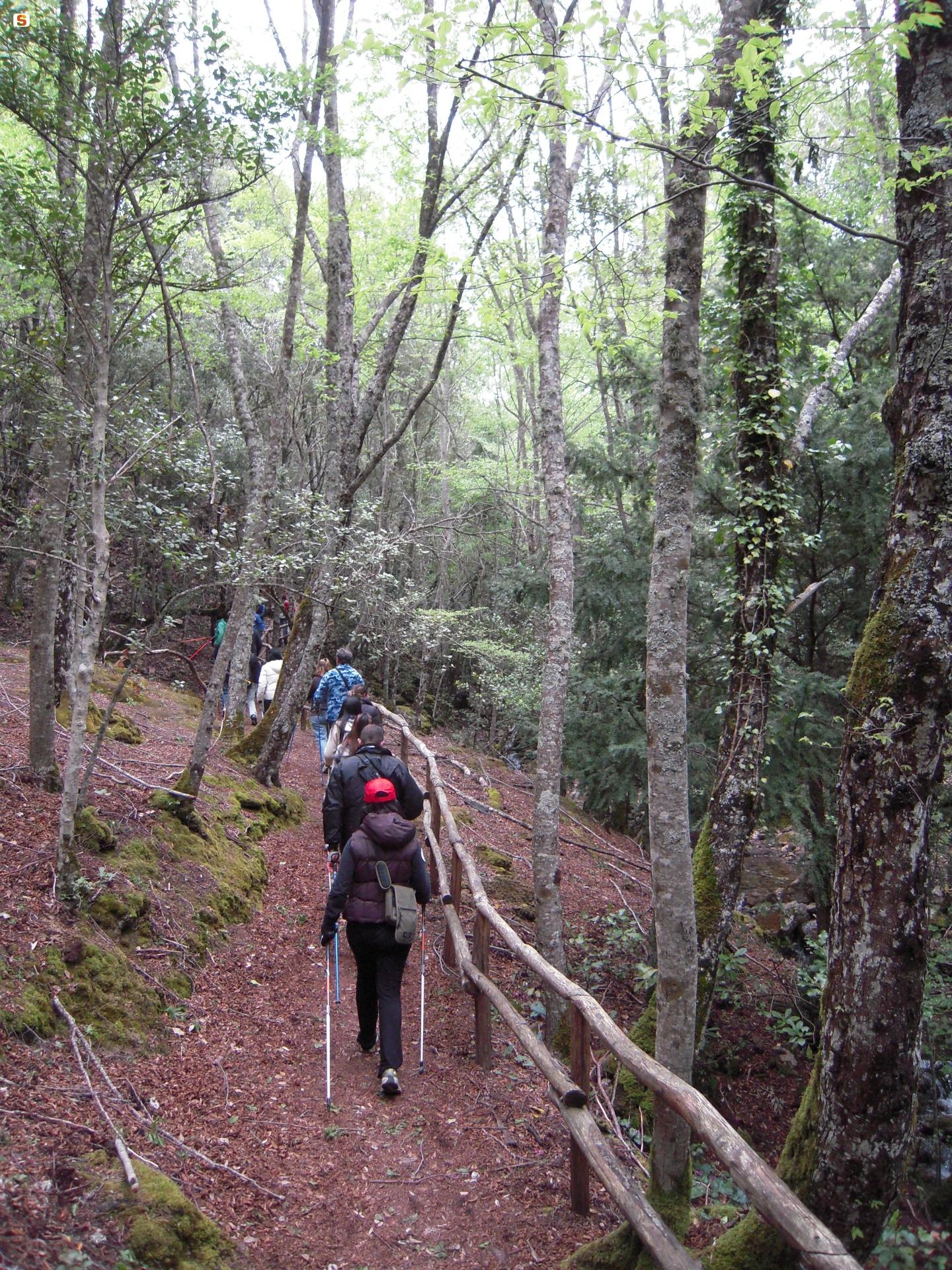The name Barbagia, deriving from the ancient Roman custom of describing those who did not speak Latin as Barbarians, is a large territory in Central Sardinia characterised by a sparse human population and striking landscapes with deep gorges and towering limestone cliffs.
The pastoral economy and wine production represent some of the area’s most important resources, while the landscape is characterised by Mediterranean maquis, a climate zone strongly distinguished by the presence of various types of trees and shrubs such as cistus salviifolius, a small shrub belonging to the Cistaceae family.
The area is also home to a heterogeneous colony of wild animal species. The presence of the Flumendosa river, which marks the boundary between Mount Perdedu and the Gennargentu mountain range, has shaped an area with an abundance of cavities and gorges, like su Stampu' de su Turrunu, and the Piscina' e Licona springs.
The town of Seulo, nestled between a mountain chain and hills on the slopes of Mount Perdedu, offers visitors numerous natural and cultural attractions; indeed, nearby you’ll find the "Domus de Janas (Fairy Houses) of Addoli, burial chambers dating back to the period between the recent Neolithic and Eneolithic.
The name Barbagia, deriving from the ancient Roman custom of describing those who did not speak Latin as Barbarians, is a large territory in Central Sardinia characterised by a sparse human population and striking landscapes with deep gorges and towering limestone cliffs.
The pastoral economy and wine production represent some of the area’s most important resources, while the landscape is characterised by Mediterranean maquis, a climate zone strongly distinguished by the presence of various types of trees and shrubs such as cistus salviifolius, a small shrub belonging to the Cistaceae family.
The area is also home to a heterogeneous colony of wild animal species. The presence of the Flumendosa river, which marks the boundary between Mount Perdedu and the Gennargentu mountain range, has shaped an area with an abundance of cavities and gorges, like su Stampu' de su Turrunu, and the Piscina' e Licona springs.
The town of Seulo, nestled between a mountain chain and hills on the slopes of Mount Perdedu, offers visitors numerous natural and cultural attractions; indeed, nearby you’ll find the "Domus de Janas (Fairy Houses) of Addoli, burial chambers dating back to the period between the recent Neolithic and Eneolithic.

